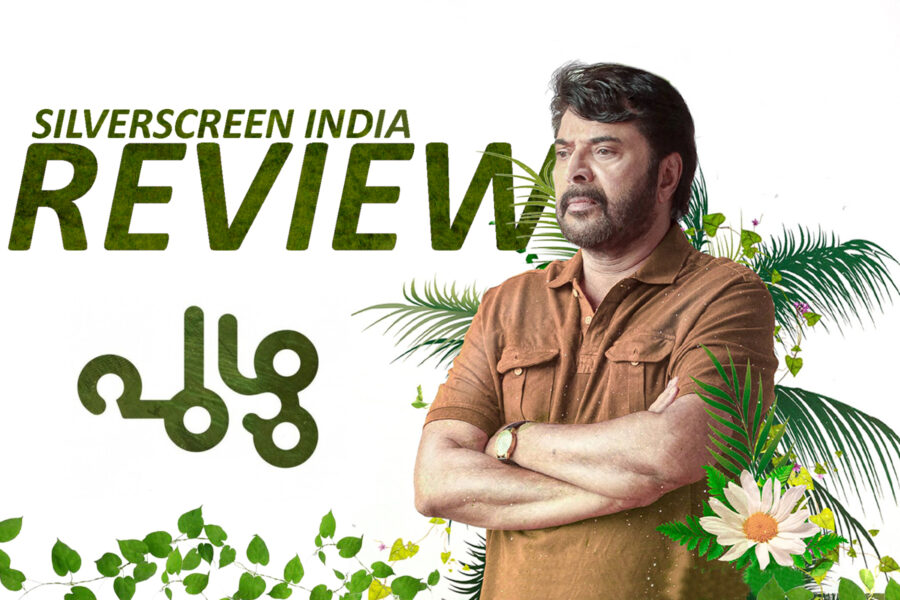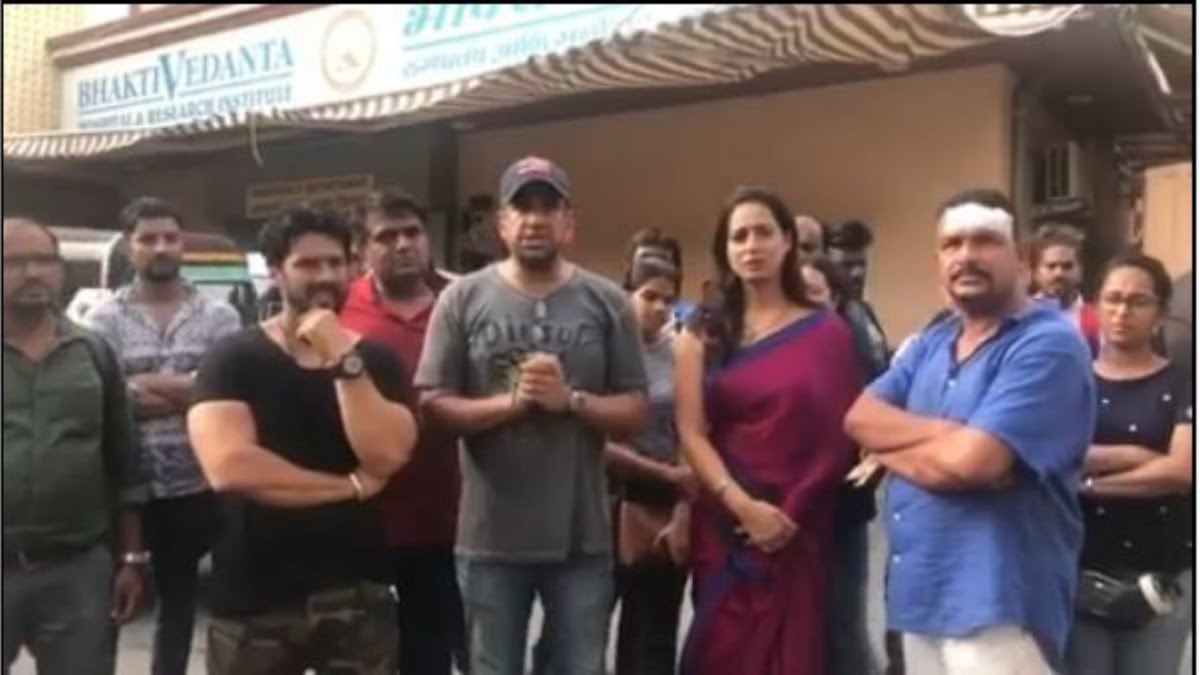The State was a Hindu policeman in Manmohan Desai’s Amar Akbar Anthony (1977), one of modern India’s most popular films on religious harmony. The Christian and the Muslim characters, played by Amitabh Bachchan and Rishi Kapoor, respectively, were marked by their religious symbols, while the Hindu man, portrayed by Vinod Khanna, dressed in neutral clothes, possessed the reins to control the society – a pattern that aligned with Hindu majoritarianism.
In Puzhu, directed by debutante Ratheena PT and written by Harshad, the upper-caste Hindu is a policeman, an IPS officer, with the power to create or destroy lives and manufacture narratives that would eventually creep into history textbooks. But unlike Desai’s film, Puzhu is steeped in reality and a fine sense of justice. The film, which aspires to be a slow-burner, takes the viewer through the seemingly perfect life of the man, played majestically by Mammootty, and reveals its dark interiors. A widower, he keeps his son Kichu (Vasudev Marar), an early teenager, a prisoner at home, barring him from playing with his friends or mingling with people who aren’t his family members. Every evening, he makes him sit with him on their living room couch and watch an old home video featuring the late mother, to remind the child of what he lost. He threatens the child and emotionally manipulates him to keep him close as he fears he would lose Kichu to the outsiders, like how he had ‘lost’ his younger sister Bharathi (Parvathy TK) when she fell in love with a Dalit playwright-actor Kuttappan (Appunni Sasi).
For the most part, Puzhu invests itself in depicting the man’s paranoia. He does not trust the walls of his plush apartment guarded by a strong security system. He reaches for his pistol every time he senses danger – the sound of a door creaking or the sight of a fallen tree on the way home. Time and again, he barges into the shabby home of his former business rival (Kunchan), whom he had driven into deprivation, believing that he is still out there to harm him. Why does he, belonging as he does to the cream of Indian society, to the class that enjoys all the social powers and material wealth, believe that he is always under threat?
A straight line connects Puzhu to several celebrated superstar films in Malayalam, such as Ranjith Sankar’s Varsham (2014) in which Mammootty played a wealthy businessman grieving the death of his teenage son. In one of the most intense scenes in the film, his former domestic help, a Tamil man, meets him and weeps, only to be slapped across the face by the master. What is odd about the scene is not the act of violence by the wealthy man but the passivity of the film that coldly moves past the poor victim. In Puzhu, every slap is accounted for, dissected and studied.
Ratheena sets the frames in such a fashion that everything inside them makes one curious about the characters. The toys arranged next to Kichu’s bed, the colour of his pyjamas (Sameera Saneesh’s costume design is fantastic) or the living room furniture. The interior of Kichu’s apartment is modern and classy, but it exudes a strange sense of horror, a reflection of his father’s psyche. The greatest strength of Puzhu is not Mammootty but the atmosphere built by cinematographer Theni Easwar and musician Jakes Bejoy. Easwar’s moody lighting and the camera movements manifest the film’s tone. One might feel a chill down the spine when his camera, slowly, moves closer to the father and the son on the couch or when it observes the man being alone with his thoughts.
But this formal style could become meaningless in the absence of an equally sturdy screenplay. Instead of looking at the specifics of life, Harshad crams into the script several social issues – caste-based violence, toxic parenting, islamophobia and police violence – and turns the narrative into a cacophony of progressive political thoughts, muting the individual voices. Kuttappan, who possesses caste consciousness and courage, comes across only as a caricature, an embodiment of a social media page, devoid of human qualities like despair, fear or disgruntlement. In the latter half, the film throws away the opportunity to be a fascinating psychological drama on the paranoia of the powerful and becomes a summary of newspaper headlines.
Recommended
In what must be its biggest misstep, Puzhu negates the cop’s paranoid schizophrenia, forcing the film to be a fable. At one point closer to the climactic end, he lashes out violently at Kichu, accusing him of partnering with his enemies. Now and then, he visits his bedridden, mute mother and like a little boy, unpacks his emotional baggage. Mammootty compensates for the natural limitations of his body using his brilliantly articulate voice and face. He brings to life the signs of the man’s mental aberrations and his intense hatred for what he regards as the ‘other’. The film’s utterly disappointing final sequence betrays this glorious performance. Ratheena and Harshad choose to make slogans out of broad strokes, abandoning the fascinating complexities of private life. Call it the curse of the woke era in Malayalam cinema.
*****
This Puzhu review is a Silverscreen original article. It was not paid for or commissioned by anyone associated with the movie. Silverscreen.in and its writers do not have any commercial relationship with movies that are reviewed on the site.



